
Pen Needles

SCAN HERE TO LEARN MORE ABOUT UNIFINE PEN NEEDLES!






SCAN HERE TO LEARN MORE ABOUT UNIFINE PEN NEEDLES!



From conventional pen needles to unique technologies, Unifine makes taking care of your patients easier with products that are available in a broad range of sizes and covered across almost every commercial plan. As one of the most trusted pen needle brands in the U.S., we put the patient first with innovative features that help enhance quality of life and drive adherence. We make patient access a priority by investing in programs that improve accessibility and affordability for all commercially covered patients. Doing the right thing for your patients shouldn’t be difficult. Unifine® makes it simple.














Facebook.com/DrugStoreNews linkedin.com/company/drug-store-news/ instagram.com/dsn_media



For a growing number of beauty brands, having a purpose helps their products stand out on the shelves
Olly CEO Hanneke Willenborg talks about the steps the company is taking to help its female employees experiencing menopause
Looking to offset declining margins, generic drug suppliers are diversifying capabilities and emphasizing specialty products, biosimilars and patient services
As inflation cools, innovation is as important as value for driving sales of private label products
Fewer choices and fewer redundancies in the aisle could help ease consumer confusion
TO P Q U A L I T Y
T R U S T E D B R A N D

I N F L AT I O N F I G H T I N G
H O P P E R VA L U E P R I C I N G
Corporate America is far from perfect, but there have been strong gains for women in the last 25 years

“WOMEN NOW MAKE UP 29% OF C-SUITE POSITIONS, COMPARED WITH 17% IN 2015. BUT PROGRESS HAS BEEN MUCH SLOWER AT THE ENTRY AND MANAGER LEVELS.”
For its 10th annual “Women in the Workplace 2024: The 10thanniversary report,” McKinsey & Company partnered with LeanIn.Org to get a handle on what is happening to women in the corporate world. The results are mixed.
This year, the two groups collected information from 281 organizations that employ more than 10 million people and surveyed more than 15,000 employees and more than 280 HR leaders. The resulting report provides a look at the specific biases and barriers faced by Asian, Black, Latina and LGBTQ+ women, as well as women with disabilities.
Here are few findings from the study:
Over the past decade, women’s representation has increased at every level of corporate management. Women now make up 29% of C-suite positions, compared with 17% in 2015. But progress has been much slower at the entry and manager levels.
Also, the corporate pipeline is not as healthy as the numbers suggest. Women remain underrepresented across the pipeline, a gender gap that persists regardless of race and ethnicity. “Simply put, men outnumber women at every level,” the report says.
Sure, progress has been slow, but it is moving in the right direction.
We are reminded of that every year we launch our Top Women in Health, Wellness & Beauty awards program. The women in the retail pharmacy, beauty and CPG sectors are making strong gains.
The sixth annual awards program singles out exceptional women in three categories—Business Excellence, Commitment to Care and Rising Stars—recognizing those who are making strides in various levels of their careers. The program is a celebration of the past and the present, honoring the women who are making or have made outstanding contributions to their companies and their communities. It also gives us a glimpse of the future CEOs and VPs.
To read about all the winners, turn to our cover story on page 22 and join us in saying congratulations to all the women who received recognition.

8550 W. Bryn Mawr Ave., Ste. 200 Chicago, IL 60631 773.992.4450 Fax 773.992.4455 www.drugstorenews.com
BRAND MANAGEMENT
Senior Vice President & Publisher John Kenlon 516.650.2064 jkenlon@ensembleiq.com
EDITORIAL
Editor-in-Chief, Editorial Director Nigel F. Maynard nigelmaynard@ensembleiq.com
Managing Editor Julianne Mobilian jmobilian @ensembleiq.com
Senior Editor Sandra Levy slevy@ensembleiq.com
Beauty Editor Gisselle Gaitan ggaitan@ensembleiq.com
ADVERTISING
212.756.5155 atomas@ensembleiq.com
Regional Manager Steven Werner 312.961.7162 swerner@ensembleiq.com
DESIGN/PRODUCTION/MARKETING
Art Director Catalina Gutierrez cgutierrez@ensembleiq.com
Production Manager Jackie Batson jbatson@ensembleiq.com
Marketing Manager Kathryn Abrahamsen kabrahamsen@ensembleiq.com
SUBSCRIPTION SERVICES List Rental mbriganti@anteriad.com
Subscription Questions contact@drugstorenews.com















































HBased on a survey of pharmacists who recommend branded vitamins and supplements.
The Equitable Community Access to Pharmacist Services Act would make permanent Medicare coverage of certain pharmacist services
By David Pope
With Congress back in session and the November election behind us, Congress has the opportunity to take on some of the kitchen table issues that affect the lives of their constituents.
Despite inaction in Washington on many issues, more than 150 members of Congress have signed onto legislation that would recognize the critical role pharmacists played in serving patients across the country by allowing Medicare reimbursement for certain clinical services. In this divided political time, it’s pretty remarkable that a nearly equal number of Democrats and Republicans are supporting the reciprocal bills in the House and Senate, and more cosponsors are likely on the way.
What’s more, nearly 150 organizations also support this legislation. Elected officials and health care companies are taking action to ensure that patient care delivered in pharmacies can be a covered service for our nation’s seniors.
The Equitable Community Access to Pharmacist Services Act would make permanent Medicare coverage of certain pharmacist services, several of which took place during COVID.
When doctors’ offices were overwhelmed during the pandemic, people turned to their pharmacists to seek out testing, vaccines and treatment for COVID, as well as flu, respiratory diseases and other common conditions.
The care pharmacies offered continues to evolve and grow to better meet community health needs. Today, diagnostics such as point-of-care testing
David Pope
for flu, strep throat and COVID are available at many pharmacies. This convenient access to care is particularly important in rural areas because nearly half of U.S. counties already face shortages of primary care providers with just one doctor for every 1,500 people.
The United States is facing a shortage of primary care physicians that is projected to get worse. The American Association of Medical Colleges expects that by 2032 there will be a shortage of up to 122,000 physicians, including up to 55,000 in primary care and 66,000 in other specialties. Augmenting some of these health care gaps with pharmacists is both necessary and urgent to ensure people have access to the services they need.
These evolving trends of convenience and access aren’t just being driven by new rules and healthcare providers. They reflect the preferences of patients.
More consumers are making the decision to get their care in pharmacy clinics, driving a 200% increase in access to healthcare at pharmacies in the last five years. More than half of all Americans visited a pharmacy for a healthcare service in 2023, and we expect this number to continue rising.
Not only that, pharmacies are becoming a preferred option for care. A survey found that nearly 3 out of 5 Americans went to the pharmacy first to address their healthcare needs. But convenience is just one of the drivers why consumers seek out care. Cost is another.
Consumers are seeking out quality care that costs less. According to a recent

Washington State University study, the median cost of care across traditional sites of care was $277.78 higher than community pharmacy-provided care. Access, convenience and cost are all factors that will continue to drive changes in healthcare delivery. The pharmacy sits at a critical junction of these concerns. But people won’t be able to access critical and ever-growing types of healthcare services at their preferred location, the pharmacy, if payors are reluctant to reimburse for these services. ECAPS legislation would require Medicare to reimburse pharmacies for the services that people are already using and want to continue to use. And that’s why it’s critical that Congress advance the legislation this fall. However, to truly ensure the availability of services and reimbursement, the states will need to decide on whether to expand the pharmacist’s scope of practice or not. dsn
David Pope, Pharm.D., is chief pharmacy officer at XiFin.

Latest data shows more than 45 million Americans are traveling too far to access basic healthcare needs
By Tori Marsh
It’s a troubling headline we’re now seeing far too often: retail pharmacies shuttering in neighborhoods throughout the country, with many cities and communities facing the brunt of the impact. Since 2021, the number of retail pharmacies has decreased by approximately 15%—a staggering amount in just three years.
For most retail chains, this trend has been driven by financial performance and the broader economic climate. But for consumers, this means fewer options for necessary health services like immunizations, prescription or over-thecounter medications and advice about side effects or medication interactions
One of the most concerning aspects of this reduction in retail pharmacies is the creation of additional pharmacy deserts, or areas within the United States where consumers lack adequate access to pharmacies, requiring at least a 15 minute drive to reach their nearest option. At GoodRx, we recently took a deep dive into the data to see how pharmacy access has evolved over the past few years, releasing our findings in our latest pharmacy deserts report.
One notable and startling data point was the number of people living in a pharmacy desert has increased by over 9% since 2021, from 41 million to 45 million. Furthermore, with retail pharmacies clustered in bigger cities and towns, nearly half of U.S. counties (46%) can be classified as pharmacy deserts.
Certain states and cities have been more impacted than others. In Vermont,
Tori Marsh
Maine and Montana, more than 40% of the population lives in a pharmacy desert. Rural states, including South Dakota, Wyoming, Alaska, Mississippi, North Dakota and Iowa, also have large shares of their citizens residing in pharmacy deserts. For some people, this may mean a 30-minute drive to fill a prescription. For others, like citizens of Arizona’s Navajo County, the trek can be more than 77 minutes. While solutions like telehealth can help break down the barriers of healthcare access, ultimately filling a prescription may prove challenging due to a limited number of pharmacy options.
For many consumers, retail pharmacies are the most accessible and trusted healthcare option due to a number of factors. For example, pharmacies offer longer operating hours for people who can’t skip work or school during traditional business hours. They also accommodate walk-ins for questions about over-the-counter options or drug interactions. They’re a reliable option for annual flu or COVID-19 vaccines. With rising out-of-pocket costs, fewer appointments and longer wait times plaguing the healthcare industry, pharmacies offer a cheaper, frictionless and real-time option for health needs. Research has shown that pharmacies can often be the preferred first line of defense for non-emergency healthcare, with people often talking to their pharmacist more often than their doctor. Retail pharmacies play a critical role in maintaining healthy communities, as

well. Unfortunately, when pharmacies close, people can begin to neglect their health. Medication adherence, which is critical for management of chronic diseases, decreases when consumers face roadblocks in accessing or affording their prescriptions. This in turn can lead to serious health complications or worsening conditions, which places a larger burden on both individuals and the broader healthcare system. Financially, fewer pharmacy options means less of a chance for consumers to comparison shop to find medications at a price they can afford. This again can reduce adherence or lead to higher medical debt for individuals.
As the number of pharmacy deserts increase, it will become more and more difficult for people to get the medications and services they need. For the health of our family members, friends and neighbors, the role that retail pharmacies play in our communities can’t be taken for granted. dsn
Tori Marsh, MPH, is director of research at GoodRx.














Walgreens Boots Alliance has announced that it will close about 1,200 stores over the next three years, including approximately 500 closures in fiscal year 2025.
“Our financial results in the fiscal fourth quarter and full year 2024 reflected our disciplined execution on cost management, working capital initiatives and capex reduction,” said Tim Wentworth, CEO of Walgreens Boots Alliance. “In fiscal 2025, we are focusing on stabilizing the retail pharmacy by optimizing our footprint, controlling operating costs, improving cash flow and continuing to address reimbursement models to support dispensing margins and preserve patient access for the future. Fiscal 2025 will be an important rebasing year as we advance our strategy to drive value creation. This turnaround will take time, but we are confident it will yield significant financial and consumer benefits over the long term.”
WBA fourth quarter sales increased from the year-ago quarter to $37.5 billion, an increase of 6.1% on a constant currency basis, reflecting sales growth across all segments.
Fourth quarter operating loss was $978 million, an increase of 117.1% compared to the year-ago quarter. The increase in operating loss reflects a non-cash goodwill impairment charge related to CareCentrix. Adjusted operating income was $424 million, a decrease of 37.7% on a constant currency basis, reflecting softer U.S. retail and pharmacy performance, WBA said.
Net loss in the fourth quarter was $3 billion compared to a net loss of $180 million in the year-ago quarter, primarily driven by a higher operating loss, a $2.3 billion non-cash charge for valuation allowance on deferred tax assets primarily related to opioid liabilities recognized in prior periods, and a non-cash impairment charge related to equity investment in China. Adjusted net earnings decreased 41% to $340 million, down 40.8% on a constant currency basis, reflecting lower adjusted operating income, the retailer said.
Walmart has shared its strategy to accelerate Adaptive Retail, which the company has hailed as “the new era of retail.”
The retailer recently revealed artificial intelligence, generative AI, augmented reality and immersive commerce platforms it is leveraging to create hyper-personalized, convenient and engaging shopping experiences across Walmart stores, Sam’s Clubs, apps and other virtual environments.
“A standard search bar is no longer the fastest path to purchase. Rather, we must use technology to adapt to customers’ individual preferences and needs,” said Suresh Kumar, global chief technology officer and chief development officer at Walmart.
Kumar added, “At the heart of our platform strategy is developing common global core capabilities that are built once and deployed across Walmart U.S., Sam’s Club and Walmart International.”
One of Walmart’s latest AI efforts is Wallaby—a series of retail-specific LLMs that will be used to create customer-facing experiences. Wallaby is trained with decades of Walmart data, enabling the retailer to combine it with other LLMs to create responses that are highly contextual and tailored to the Walmart environment.
“Retail today goes beyond just online and in-store shopping, or even a combination of both. It’s about meeting customers in new places, particularly younger generations for whom shopping is often a byproduct of other activities, like gaming,” the retailer said. dsn


The Inspired Home Show ® is the industry epicenter for everything new and next in home + housewares, bringing enduring and emerging trends your customers are looking for front and center.
Don’t miss this must-attend event where the industry connects around innovation, insight and inspiration.


See what’s new and register for the 125th Show!
HRG’s five notable products from October

1 3 5

2

Product introductions plummeted in October after a dramatic recovery in September, continuing a volatile trend of up and down.
In October, suppliers introduced just 49 new products, which is 89 fewer items than the 138 they released in September. Waukesha, Wis.-based HRG reviewed six products in the health category, 39 items in the wellness sector and four products in the beauty aisle to see which ones stood out as Products to Watch.
Here are the top five:
Bridges Consumer Healthcare said Cystex Max UTI Pain Relief tablets are formulated to provide relief from pain, burning and urgency by targeting urinary tract infection discomfort at the source. The company claims the phenazopyridine hydrochloride 99.5-mg tablets start working in as little as 15 minutes. One pack contains 24 tablets.
Halls Cough & Throat Relief + Immune Support Drops from Mondelez International are designed to help clear mucus, soothe coughs and cool nasal passages while also supporting a healthy immune system. The drops contain real elderberries and vitamin D. It comes with 25 drops.

4

Alva-Amco’s Diurex Bloat Reliever Drink Mix is formulated to ease discomfort from water bloat, help flush excess water and deliver hydration when the berry powder is added to water. A new form to the diuretic segment, the powder contains dandelion extract, green tea extract, watermelon fruit, cranberry fruit, apple cider vinegar and juniper extract. One package contains 12 packets.
Haleon’s Eroxon Fast Acting Gel is designed to help consumers aged 22 and up with erectile dysfunction. The company said the drug-free, easy-to-use gel works faster than the leading prescription pills and is safe not only for the user but also their partners. It comes with four 0.8gm tubes.
Crown Laboratories said its PanOxyl Blemish Aftercare Brightening Patches for acne-prone skin are formulated with spot-fading complex ingredients, including niacinamide, vitamin C and tranexamic acid. The company said the unique, large patches will visibly improve the look of post-acne marks, dark spots and redness while improving the texture of skin and appearance of pores. One pack contains 16 patches. dsn































































































Sandra C. Canally, RN, Founder and CEO of The Compliance Team
Sandra C. Canally, RN, Founder and CEO of The Compliance Team, a nationally recognized healthcare accreditation organization, discusses why pharmacies need to look back to move forward to succeed in today’s healthcare environment and beyond.
Drug Store News: Thanks for speaking with us Sandy. This year, The Compliance Team is celebrating 30 years as a leader in healthcare accreditation. During that time, you’ve seen a lot of changes in Pharmacy. What’s the future hold for pharmacy?
Sandra Canally: I believe we need to look back to succeed in the future. Back to the day you had the neighborhood drugstore. It was all about relationships the pharmacy had with their patients and the community. Your pharmacist knew you and your health issues. Along the way drugstores got complicated. More drugs in the mix, more regulations, now it’s all about filling and billing of scripts. Pharmacies are busy, understaffed, and relationship building went by the wayside.
DSN: The pandemic certainly didn’t help. Right?
SC: Yes and no. Pharmacies, like most healthcare providers, were caught off guard and stretched beyond capacity. But the pandemic also showed that pharmacies can play a more clinical
role in individual and community’s health. In a sense it has gone back to the individual seeing the pharmacists as a trusted part of their health team and wanting that relationship. Not just filling scripts. More value-based healthcare rather than transactional. Little by little adding clinical services to the mix. As we move forward, this will be a must. And health plans are also moving towards the value-based model and starting to acknowledge and compensate pharmacies who are. Pharmacies that build relationships and provide valuebased care to their patients will have a strong competitive edge.
DSN: But as you pointed out pharmacies are busy and understaffed; how do they find time to build relationships with their patients?
SC: Pharmacy accreditation programs can help by putting policies and procedures in place that may have gone by the wayside during the pandemic. Or maybe never existed. Accreditation can help streamline operations, initiate quality improvements, and consistent performance throughout the pharmacy. Improving the quality of care and more time with their patients.
DSN: At NACDS you announced a new Pharmacy eCommerce Protection Accreditation Program. How does that fit into pharmacy today and moving forward?

SC: To add to the complexity of the pharmacy are the challenges of the digital world for those doing business online. Filling scripts, accepting payments, and meeting rigorous regulatory standards across multiple platforms. This is all about protection for the pharmacy and its patients and establishing trust. Up until now there weren’t many choices in accreditation organizations that understood both pharmacy and digital regulatory standards. With our Pharmacy e-Commerce Protection Accreditation Program and decades of pharmacy regulatory and accreditation experience, pharmacies now have one accreditation resource to ensure they’re compliant and meeting all regulatory requirements for their physical and digital pharmacy operations.
DSN: Running a successful business for 30 years in the healthcare industry is quite a feat. To what do you attribute TCT’s success?
SC: Always keeping a pulse on the industry, anticipating challenges and changes ahead, and developing programs and our expertise to be at the forefront of those changes. Also, TCT’s mission and vision has been the same for 30 years. It’s what guides us in all we do: Every patient deserves exemplary care. Healthcare delivery excellence should not be difficult or costly to achieve. Focus on what matters most to the patient—Safety∙Honesty∙Caring®. dsn
“I

Your single solution for total security and compliance.
The Compliance Team (TCT), a leader in pharmacy accreditation, has drawn from its decades of industry and accreditation expertise to design their new Pharmacy e-Commerce Protection (e-CP) Accreditation program.
Integrating all your security and regulatory requirements, e-CP covers your physical and digital operations, to protect the integrity and safety of your online pharmacy business.
· Establishes credibility and trust with your online customers.
· Robust security and compliance safeguard the entire business.
· Covers all physical/digital operations and regulatory requirements.
· Simplifies managing complex regulatory compliance across platforms.
· Ensures consistent, high-quality patient care across all departments. For more information about Pharmacy e-Commerce Protection Accreditation, contact Caitlin Warner, cwarner@thecomplianceteam.org or 215.654.9110.

Drug Store News caught up with Timea Ciliberti, executive chairwoman of Relaxium, to learn more about the nutraceutical product
Drug Store News: What are the driving forces behind Relaxium?
Timea Ciliberti: Timea Ciliberti, executive chairwoman of Relaxium, is the driving force behind this innovative nutraceutical wellness company. By focusing on solving consumers’ problems with cleaner products, Relaxium has gained millions of loyal customers and topped numerous categories. Timea’s diverse experience and unique perspective have been pivotal in this success, challenging corporate norms and assumptions.
DSN: How is Relaxium driving consumers to retail doors in 2024?
TC: We strategically use nationally targeted digital and TV advertising campaigns to promote Relaxium, making it the top brand at GNC and other retailers. Our $205 million investment in 2024 is expected to reach 58% of ad viewers likely to shop in stores, driving over 102 million people into retail locations. Relaxium is committed to creating impactful solutions that improve the well-being of millions.
DSN: How is Relaxium positioned in the market?
TC: Relaxium is America’s #1 Trusted Brand! Positioned as the leading brand in the Sleep & Mood categories across Direct to Consumer, Amazon and select retail channels, it has achieved unprecedented customer loyalty on Amazon, outperforming industry averages by 3X for all supplements in AOV, LTV and Avg orders, according to Metrilo
DSN: What differentiates Relaxium from other brands?
TC: Relaxium products are studied, tested and formulated by renowned clinical neurologist Dr. Eric Ciliberti. Supported by extensive research and studies we’ve created a brand that consistently delivers outstanding results, while prioritizing the health and well-being of consumers by addressing every top concern: sleep, mood, pain, joint, memory and brain health and soon launching our new line of women’s wellness products in 2024.
DSN: What’s next for Relaxium?
TC: Relaxium is set to change even more lives with our launch of Flexium Fast Acting Joint Support and our Flexium Full Body Pain Relief Spray. The brand’s effective formulas have positively impacted consumers, including well-known figures like Dan Marino. Furthermore, Relaxium is set to enter the

women’s wellness space later this year with highly effective ingredients supported by robust clinical research.
DSN: What inspires you personally?
TC: My advocacy surpasses the boardroom. I find inspiration in championing important causes such as environmental sustainability and the empowerment of women’s entrepreneurship. I’m committed to shaping a more equitable and sustainable world through initiatives like the Relaxium Dreamers Contest. I believe it’s important for influential individuals to use their platforms to advocate for positive change in the world. dsn
SOLVES TOP CONSUMER PROBLEMS DRIVES CATEGORY GROWTH CONSUMER RETENTION & LOYALTY VS LEADING BRAND 3X

AMERICA’S #1 TRUSTED BRAND SPEND ON DIGITAL Retail Stores!
DR

TV Media in 2024! $205M Consumers to DRIVES102M

NEUROLOGIST DEVELOPED BRAIN & MOOD SUPPORT THAT WORK! Dan Marino’s



# 1 TRUSTED BRAND TM
DRIVES MILLIONS OF SHOPPERS TO BUY EFFICACIOUS SOLUTIONS CONSUMERS WANT
Here are the 2024 Top Women in Health, Wellness & Beauty award winners

The Top Women in Health, Wellness & Beauty awards program acknowledges women who are at the top of their game. Its primary goal is to acknowledge achievements and provide educational resources to individuals across the industry.
For the 2024 awards, the DSN team chose recipients in three categories—Business Excellence, Commitment to Care and Rising Stars—honoring women making significant advancements at different stages of their professional journeys.
To celebrate their achievements, DSN will hold the award ceremony in Chicago this month, when winners will receive recognition at the upcoming Top Women in Health, Wellness & Beauty. In addition to the ceremony, this year’s event will feature thought leadership panels and presentations, networking opportunities with industry colleagues and mentorship opportunities. Congratulations to all the winners.
Agnes serves as the senior director for ambulatory pharmacy at Northwell Health. She oversees the health-system ambulatory pharmacy teams, including clinical pharmacy specialists and pharmacy coordinators providing services for physician practices. She is responsible for implementation and optimization of ambulatory clinical pharmacy initiatives, including CDTM collaborative practice agreements, telehealth counseling programs and centralized patient assistance.
Alicia is a senior program leader of customer experience at iA. Alicia brings calm, consistent leadership to complex customer discussions that would be volatile and less productive without her. Her data-driven and light-hearted leadership is the perfect combination to maintain customer expectations that result in a high-quality customer experience. This year she developed a data driven scoring mechanism to measure customer satisfaction.
Allison serves as the senior manager of pharmacy procurement for Publix Super Markets. She is responsible for directing and developing Publix Pharmacy’s pharmaceutical procurement strategies. Allison began her career with Publix in 2011 as a pharmacy intern and has served in various roles on both the retail and support side of the business. She has integrated her experience as both a pharmacy manager and supervisor into her current work, providing solutions to more than 1,300 pharmacies.
Amanda leads the Shopper and Category Insights team for Walmart at Haleon, as well as its Shopper Science Lab, an onsite learning and collaboration facility. Amanda is known for her insightful and inspiring approach to driving shopper insights and innovation. She is committed to developing shopper-based healthcare platforms in collaboration with Walmart, focusing on high-need and underserved populations.
Amie leads marketing for McKesson’s Health Mart stores, collaborating with product managers to promote tools and technologies that enhance franchise operations. She designs workflows and planners for both customers and internal teams, ensuring everyone is well-educated and prepared. Over her 17 years with McKesson, Amie has excelled in various roles, including operations, project management, marketing, communications and strategy.




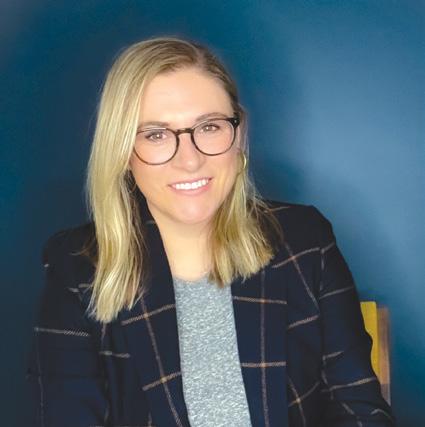
Formulated with the Hydro-UreaTM complex to help restore skin’s water-binding capacity, CeraVe Intensive Moisturizing Lotion replenishes skin’s natural moisturizing factors (NMFs) and restores the skin barrier to continuously hydrate and reduce itch due to dryness.
• 5% Hydro-UreaTM helps restore skin’s waterbinding capacity and replenish NMFs
• Ceramides 1, 3, & 6-II (EOP, NP, & AP) help restore and maintain skin’s natural protective barrier
• MVE
® Technology continually releases moisturizing ingredients for long-lasting hydration
• Hyaluronic acid helps retain moisture
• Shea butter helps hydrate and soften dry skin
EFFECTIVE
FOR DRY SKIN OF ALL SEVERITIES
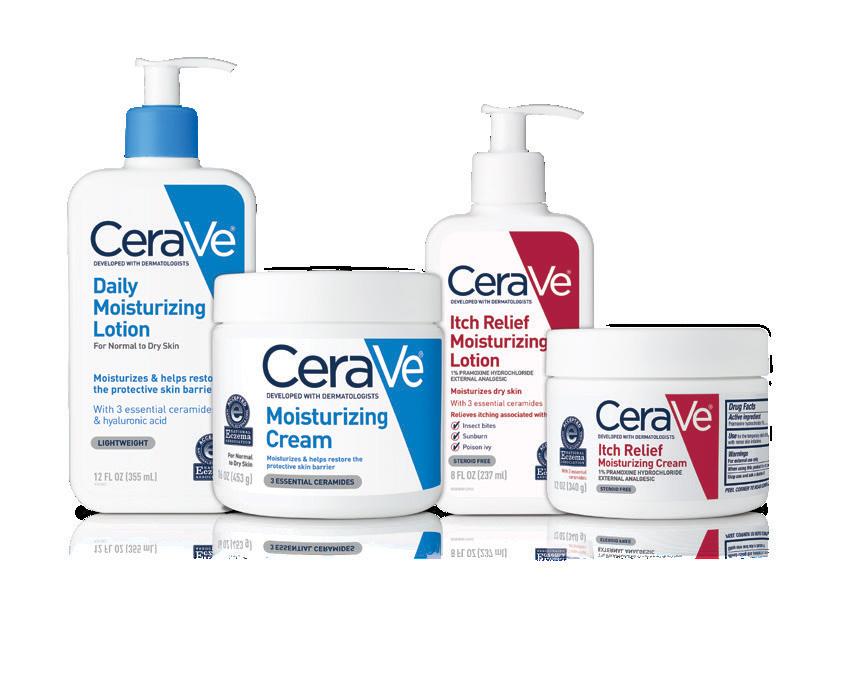





Anna leverages more than 15 years of diverse experience, including grocery, mass and wholesale distribution, to navigate through challenges and achieve success. Currently serving as the category manager of vitamins/supplements, foot care, deodorants, trial/travel, shaving/grooming and alternative therapy at Cencora (AmerisourceBergen), Anna thrives on working collaboratively for continued improvement and growth.
Anna, senior analyst at Walgreens, spearheads the Prenatal Vitamin Program and the Walgreens-Vitamin Angels partnership. Her strategic leadership scaled the program from 16 to 2,600 stores, reaching more than 10,000 underserved women with prenatal vitamins. Anna optimized product distribution and inventory management, enabling auto-replenishment across stores and enhanced leader communications.
Beth serves as the senior manager of Cencora’s consumer products purchasing team and has more than 23 years of expertise in over-the-counter pharmacy procurement. She is responsible for ensuring customer and patient accessibility to health and beauty products across Cencora’s distribution network. During times of managerial transitions, Beth has offered leadership and direction to empower the consumer buyers.
Brittany leads the beverage division at Walgreens. She’s been in her role since May of 2023 and has spent more than a decade at Walgreens managing and leading a number of divisions and categories including cough cold and allergy. She is dedicated to enhancing the customer experience at Walgreens and does that through strategic planning with her team, cross-functional partners and joint supplier partners.
Brittany has been a pharmacist in Louisiana for five years. She started her career in the traditional retail setting and has been in current clinical role for more than three years. Brittany conducts medication therapy management to improve medication adherence and close gaps in care with statins for specified disease states. During respiratory season, she conducts off-site clinics in the community and leads her district travel health consults, diabetic care and specialty medication administration.




Dr. Brittany Venturella is the manager of clinical, specialty and central pharmacy services at Weis Markets. She is responsible for implementing strategies and maintaining trade relations with manufacturers, vendors and healthcare professionals to drive the operational success of the specialty pharmacy. This year, she successfully led her team in obtaining dual accreditation by URAC and ACHC.
Brittany is a leader who focuses on connecting with people and inspiring trust to break down barriers while teaching, coaching and elevating the thought processes of her team, peers and leaders. Brittany rises to the challenge time and time again. She has the ability to strategize, problem-solve and drive results with the buy in and support from her team.
As the director of pharmacy procurement for Albertsons Companies, Caitlin oversees pharmaceutical supply chain distribution for Albertsons national pharmacy network. Caitlin’s background as a clinical pharmacist, along with 16-plus years of company experience, have driven her commitment to customers. Through cross-functional leadership and development of strategic partnerships, Caitlin has delivered value via productivity and cost savings initiatives.
Calli has led the P&G Target hair care business for the last seven years. Under her leadership the business has doubled in sales. Calli has spent her 18-year career with P&G growing her expertise in hair care, with broad-based channel experience across salon professional, internal and external sales and category management.
Catie serves as an omnichannel category manager at The Emerson Group – Walmart Team, where her love for learning and creating new solutions provides the retailer and brand partners meaningful and actionable insights. By integrating sales data and shopper behavior trends, she helps shape brand strategies and uncover unique opportunities.
Chi is the experiential coordinator and residency coordinator for the Southern Division at Randalls/Albertsons Companies. Over her 22-year tenure at Randalls, she held various roles including pharmacist, pharmacy manager and patient care pharmacist where she provided clinical support to the Houston and Austin areas. Chi graduated with her Pharm.D. from the University of Houston College of Pharmacy in 2002.








Culturelle®
Formulated with a Clinically Studied Probiotic Strain, to support the whole family.
AZO®
The #1 Preferred Vaginal & Urinary Health Brand.ℓ
Estroven®
The #1 Menopause Brand of choice among women & #1 Pharmacist Recommended Brand.‡
DiarrhEase™
Reduce the duration of occasional diarrhea for the whole family.* Safe & drug free.
Ovega-3®
A plant-based omega-3 supplement containing both DHA & EPA omega-3 fatty acids to support heart, brain, eye, joint, & overall health.*


Christine has been delivering community pharmacy patient care for more than 11 years at Meijer Pharmacy. In her role as pharmacy manager in Canton, Ohio, Christine supervises the daily operations of medication delivery, immunizations, inventory management and clinical services. She also assists with various corporate projects including regulatory compliance, training aspiring pharmacists and community outreach.
Clarissa is category manager at Cencora, overseeing digestive health, skin care, sun care and pet supplies categories. Throughout her career, she has held various roles in category management and purchasing, encompassing multiple categories. She takes pride in her collaborative relationship with the supplier community, formulating and implementing category strategies that meet sales and margin goals focusing on Cencora’s customers and their patients while providing excellent support to Cencora team members.
Courtney has several key roles within the Albertsons organization, including patient care pharmacist, experiential education coordinator, residency coordinator and Pharmacy Quality Assurance Committee Chair. Her time is spent educating and empowering the pharmacy teams to elevate the patient care experience while achieving a higher level of patient outcomes.
Courtnie is a senior brand manager at Nature’s Truth, where she oversees product development, launches and distribution. She excels in strategic collaboration with internal teams to harness customer insights and industry trends, ensuring the creation of wellness products that resonate with consumers. Courtnie has driven the success of products across major retailers.
Danielle leads the Target and Meijer businesses for i-Health, spearheading growth strategies for brands like Culturelle, AZO and Estroven. Focusing on customer centric initiatives, she has helped shape future innovation by collaborating with retailers, worked internally with cross functional partners to drive best in class processes, developed a digital strategy that is driving category leading results and led negotiations with retail partners to improve the profitability and performance of i-Health brands.



by Drug Store News

Jesslyn Rollins, CEO
Danielle is the executive director of retail integrated marketing at CVS Health, where she leads strategic marketing initiatives for the front store. Danielle has revolutionized the marketing planning process, significantly increasing returns on media investments. She is recognized for her transformative leadership, fostering collaboration and transparency across teams.
Donna oversees the beauty service and experience team at CVS Health, which is dedicated to improving customer interactions and decision-making at shelf and enriching the beauty buying experience. Donna is dedicated to ensuring her teams feel supported and valued, and proudly advocates for the inclusion and representation of underrepresented groups in the corporate setting.
Elizabeth is the divisional merchandise director for Rite Aid’s OTC and smoking cessation businesses. Varying retail roles as a store manager, merchandiser/space planner and within category management have informed her mindset that when building out an assortment, the customer’s needs and shopping habits come first.
Erin is the director of pharmacy compliance and inventory on the pharmacy operations team at Rite Aid. In her role, she oversees the strategy and execution of compliance with pharmacy operations and inventory programs. She leads a team that works to align, communicate, train and support the store and field teams on the policies and programs that govern Rite Aid’s pharmacy practice.
Heather is the manager of pharmacy regulatory affairs for Publix Super Markets, Inc. She has served Publix Pharmacy in various roles since 2006 including becoming the inaugural manager of Central Pharmacy in 2010. She assumed her current role in 2023 and has shown her ability to work with and amongst various federal and state agencies to impact change on the profession, including promoting regulations that advance pharmacy practice to improve patient care.
As a PCSP, Heidi leads the development of Randalls clinical services and a clinic coordinator in the Houston and Austin areas. She is responsible for providing support, training the pharmacy team and the advancement of the company’s clinical services, such as immunizations, medication therapy management, specialty medication administration, diabetes control and travel health program.





















































As the director of operational effectiveness and automation, Jayme has been instrumental in driving innovation and efficiency across the organization. With a keen focus on leveraging technology to enhance operational processes, she has successfully implemented automation solutions that have significantly improved productivity and reduced costs. Under her leadership, the team has delivered substantial growth, reflecting her commitment to excellence and her ability to lead high-performing teams.
Jillayne has 18 years of experience in consumer behavior and analytics, gained as a business owner and in mass retail. She has played a key role in launching and expanding brands, creating innovative products and generating around $500 million in retail sales. Her career includes significant positions at MPG and as a former Walmart merchant, where she excelled in building strong retailer-supplier relationships. Her strategic insights and analytical skills have been vital in aligning growth strategies and fostering collaboration, driving mutual success.
As the category manager in beauty care at Harris Teeter, Jordan is responsible for delivering innovative and relevant assortment to her consumers in beauty and skin. She has been instrumental in evolving the natural and premium assortment, all while reducing excess inventory, and leading a shrink reduction initiative within HBC. Jordan has focused on optimizing the product offerings in her categories in less space by maximizing productivity and profitability, and in turn grew sales and market share.
Kacey began her career with McKesson in 2015 and has held various sales roles working with both health systems and retail pharmacies. She graduated from William Paterson University with a bachelor’s degree in Professional Sales. As a member of the RxOwnership team, Kacey consults with pharmacy owners to provide individualized business valuations as well as guidance for buyers, sellers and owners looking to start up a new pharmacy.
Kate is a sales manager at Market Performance Group, an end-to-end omnichannel strategy and services company for many of today’s manufacturers and retailers in the CPG industry. Working on the CVS team, her responsibilities include developing and executing strategic go-to-market strategies for her supplier partners and achieving long term growth.
Kaylin has been serving the community of Ludington, Mich., as a pharmacist for nine years and has led the Meijer pharmacy team at store 193 since 2018. During her time at Meijer, she has taken on a variety of operational and clinical roles and has contributed extensively to the training and development of numerous technicians, pharmacists and team leaders.







Kerri is a senior brand manager at Piping Rock Health Products, where she leads the private label division. Over seven years, she has managed 15 private label brands, driving sales, boosting productivity and streamlining processes. Her strategic initiatives have led to cost savings and product launches in major retailers.
Krina has held many roles at Meijer, from intern to pharmacy district manager, where she is responsible for helping pharmacies operate as efficiently as possible while adhering to company policies and ensuring full compliance of the pharmacy. Krina collaborates with all the leadership across all the areas of the pharmacy business to ensure patients’ and stores’ needs are met to provide patient care.
Krista is the manager of patient care services for Albertsons Companies, where she manages the prescribing and point of care testing services for all pharmacies. In the past year, Krista has focused on streamlining prescribing and point of care testing services, expanding current services as legislative opportunities arise and adding new prescriptive services.
Krystal is the director of multicultural marketing at Universal Beauty Products, where she oversees a portfolio of brands. Since joining the company, Krystal has spearheaded several key initiatives, including the successful rebrand of the 31 year old JML brand portfolio, brokering a multi-year partnership with JML as the official personal care partner of the Chicago Sky.
Leila is the manager of business development for Publix Pharmacy, responsible for evaluating and onboarding new technology solutions to improve associate and customer experience. Recent implementations include Publix virtual care, prescription delivery and a platform which generates alerts to help pharmacy associates close gaps in patient care.
Lisa holds a Doctor of Pharmacy degree from the University of Kentucky as well as a Masters in Business Administration. She has worked at Walmart for 16 years and now leads its health services offerings. This year she lead the team that launched pharmacist led testing and treatment and birth control prescribing across the country.
Lisa has led the Walgreens Pharmacy inventory and wholesaler management team for the past year and has 20 years of supply chain experience. This year, her targeted inventory strategies to maximize patient service and working capital improved operational efficiency and solidified the company’s position as an industry leader.



















As the director of patient care services, Liz oversees immunization services, travel health, point-of-care testing, pharmacist prescribing services, vendor-sponsored clinical programs and diabetes programs across Albertson’s pharmacies. Liz builds patient engagement programs to inform and educate patients on vaccinations they may be eligible for, grows the travel health program and expands pharmacist prescribing services.
Mary is a strategic marketing and brand executive who leverages data to unlock consumer insights. Since arriving at CVS, she has leveraged this ability to inform bold decisions, shaped top-performing marketing platforms and launched enterprise-level initiatives. Mary led the Women’s Health marketing strategy #HereforHer, formulated to break down the barriers associated with women’s health access.
As the senior director of sales at Simply Good, Mary Lynn oversees the sales of the Atkins and Quest brands. She is instrumental in driving top-line growth, ensuring robust financial stewardship and fostering strategic partnerships. Mary Lynn leads a team focused on the Kroger business. Under her leadership, the team successfully launched more than 20 new SKUs in the past year.
Melanie, a business consultant at McKesson, supports customers in the North East and NY Metro markets through Health Mart. She focuses on driving revenue and enhancing patient care for independent pharmacy owners. Collaborating across the strategic, community and specialized pharmacy segment, Melanie boosts engagement and delivers solutions through the SCS coalition.
Melissa is the director of clinical education and program implementation for Rite Aid Corporation. Melissa and her team provide education and implementation support to Rite Aid’s field leaders and store locations to ensure successful outcomes of all clinical programs and initiatives. She is responsible for aiding in the delivery of a higher level of patient care focusing on adherence, immunizations, medication therapy management, state-specific prescriptive authority and market-specific strategizing.
Mimi is a retail professional with more than six years of experience at Target. She has a passion for helping small businesses grow and a deep understanding of brand and consumer behavior. Mimi holds an MBA from Northwestern University’s Kellogg School of Management and is a strategic thinker with an international perspective.
Molly is the lead director of retail pharmacy product quality at CVS Health. She leads critical patient safety programs and contributes to protecting a multi-billion-dollar pharmacy inventory. Molly earned her Doctor of Pharmacy in 2014 and a Masters in Pharmacy Business Administration in 2021, both from the University of Pittsburgh.
During her five years at P&G, Ophir has had the opportunity to partner across a number of the company’s retail channels of e-commerce, club and mass. Today, Ophir is the sales director of the Walmart business, managing the company’s Crest business. Her responsibilities include business delivery of top-line, bottom-line and market-share, along with long-term strategic planning across the portfolio.
Rosalind is the executive director of multicultural sales and marketing at Universal Beauty Products. She has been in the beauty industry for more than 15 years and has been instrumental in driving growth and brand awareness to several brands. She has executed brand launches as well as transformed business models and go-to-market strategies for manufacturers.
Sanamnaz has been with CVS for five years and is the lead director-category manager in cosmetics. Sanamnaz is passionate about helping customers on their path to better health by helping curate customer-centric assortments and execute strategic promotional plan by partnering with suppliers as well as cross-functional partners.
Shannon is a procurement professional at Wakefern, where she is responsible for health and beauty categories. Over the course of her career, she has developed a strong expertise in negotiating, analyzing market trends, product knowledge and building strong relationships with suppliers to ensure the best possible outcomes.
Stephanie is a senior director of sales at Milani Cosmetics, where she leads the Target and Ulta Beauty businesses. With a deep understanding of the consumer and retailer landscape, she has leaned into strategic insights and instinct to drive growth on the Milani business.
Tamara is the category manager overseeing the household, household paper and housewares portfolios at CVS Health. While executing transformative strategies to deliver profitable growth, she curates an assortment of eco-conscious and safer-for-you products.
Vanessa is the manager of operations for Publix Super Markets’ central fill facility. She oversees daily operations and a staff of pharmacists, technicians and warehouse associates who work to ensure prescriptions are filled safely and efficiently.






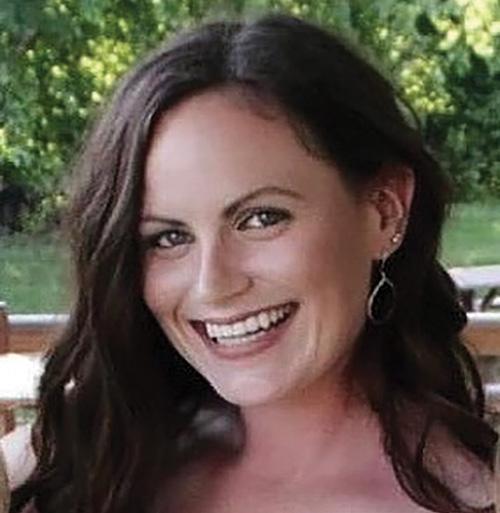

Whitney DuBois, Pharm.D., CPPS, is a 17-year veteran of Kroger Health and is currently a clinical operations manager. In her various roles, she has functioned as a strategic connector of stakeholders to lead development of the integrated clinical documentation platform for retail pharmacy, implement novel temperature monitoring of pharmacy products and transform patient outreach programs.

Alison Cook, Pharm.D., has held various roles at Kroger Health during her 17-year tenure with the company, including pharmacy manager, district coordinator, operations manager for centralized clinical services and now program development manager. Her leadership has allowed for the creation of an omnichannel clinical experience for patients and the development of clinical programs that promote continuity of care.
Deeannah is CEO and co-founder of pH-D Feminine Health, a feminine care brand. The brand has pioneered a new category in the retail industry, and its products are available at more than 50,000 retail locations in the United States and Canada, including Walmart, Walgreens, Target, CVS, Kroger and more.
As a pharmacy team leader, Hannah has steered two pharmacies toward success. Her inventory management techniques have reduced costs, contributing to the financial health of the company. Hannah’s expertise in pharmacy operations, along with her commitment to her community have established her as a valuable asset to the organization and a respected leader in the pharmaceutical industry.
Irasema joined CVS Health in 1994 and during that time, she held positions from pharmacy technician to corporate partner. One of the best projects Irasema has been a part of was planning/supporting the LTC by CVS program on the heels of the COVID-19 pandemic.
Dr. Jessica Puckett Beasley is a senior director of store operations business partnerships with over 20 years of experience in pharmacy, healthcare and team management. She is focused on enhancing patient care coordination across pharmacy, primary care, urgent care and specialty services.
Jesslyn is the CEO of Biolyte, which was founded by her father, an anesthesiologist, when her mom was battling breast cancer. Jesslyn has led the brand into 20,000-plus retail locations, Amazon and its own e-commerce avenue.




Product Knowledge
Advocate for You Responsiveness
Likeable and Trusting
Katie is the director of pharmacy operations at Stop & Shop, overseeing pharmacies across multiple states. With more than 25 years of experience at Stop & Shop, she has advanced from pharmacist to her current leadership role.
Maranda Horine, FNP-C, MSN, BSN, joined The Kroger Co. in 2010. She is now a clinical operations manager, where she has created a centralized telehealth team that has increased the time providers have available to care for patients in person.
Melissa Hurd, CPhT, is a patient care technician with 24 years of pharmacy experience in Indiana and Michigan. Most recently she used those skills to help open a new pharmacy within one of Meijer’s supercenters, where she helped train and develop new team members.
Nermeen joined Albertsons company two years ago. She’s been a pharmacist for almost two decades, starting as a technician at a Rite Aid in Kirkland, Wash., and making it to divisional vice president for Pacific Northwest. Nermeen is thrilled to have a role that supports the divisions and pharmacy teams in their efforts to create loyal customers for life.
As pharmacy manager, Nicole is responsible for leading and directing her pharmacy team, including both staff pharmacists and pharmacy technicians. She is accountable for the management, oversight and operation of all aspects of her pharmacy. This includes patient safety, regulatory requirements, quality assurance, customer service, inventory management, loss prevention and workflow management.
Nikki Price, RPh, has been with Albertsons Companies since 1993, starting as a community pharmacist and has since then held numerous roles through human resources, pharmacy compliance and pharmacy operations. Nikki is in the managed care area where she is responsible for working with PBM payors on reimbursement and improving medication adherence within the Medicare population.
Dr. Shivani Mehta, director of Baya Clinical Services and a 2022 graduate from the University of Florida College of Pharmacy, spearheaded the development of programs such as test and treat, comprehensive medication management and obesity management. She also manages a sterile compounding facility within a retail pharmacy. Additionally, Dr. Mehta trains and oversees pharmacy residents and staff pharmacists, ensuring their proficiency.




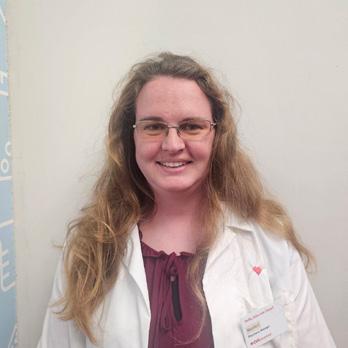














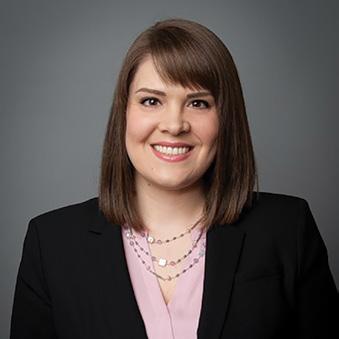













EnsembleIQ is the premier resource of actionable insights and connections powering business growth throughout the path to purchase. We help retail, technology, consumer goods, healthcare and hospitality professionals make informed decisions and gain a competitive advantage.
EnsembleIQ delivers the most trusted business intelligence from leading industry experts, creative marketing solutions and impactful event experiences that connect best-in-class suppliers and service providers with our vibrant business-building communities.










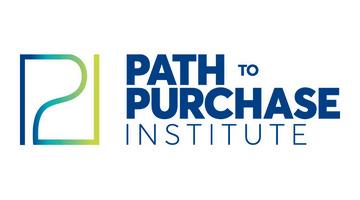

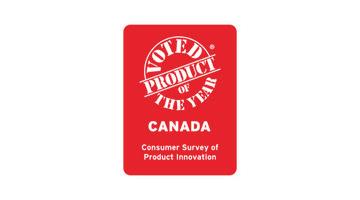



























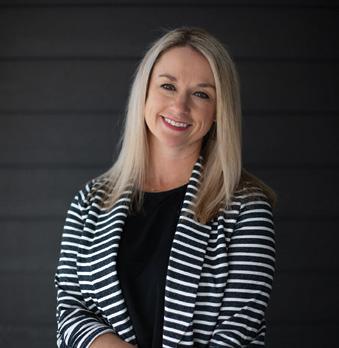
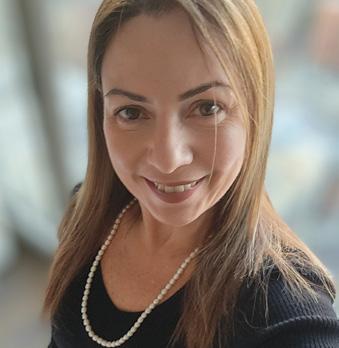

49. Rachel Tetreault, Market Performance Group
50. Rageshree Parab, Rite Aid
51. Sarah Freytag, CVS Health
52. Shanin Roque, L’Oreal
53. Shelby Stritzke, Hy-Vee
54. Summer Williams Kerley, Rite Aid
55. Susan Celentano, Market Performance Group
56. Suzanne Feeney, Health Mart
57. Tanya Schmidt, Thrifty White Pharmacy
58. Tonya Woytowich, Weis Markets
59. Tracey Lopez, Dr. Reddy’s Laboratories
60. Leigh Anne Malone, Kroger Health.
Additional Winners:
Shannon Klingman, Lume Deodorant





































For a growing number of beauty brands, having a purpose helps their products stand out on the shelves
By Nicole Stempak

The saying beauty is more than skin deep applies to brands, too. A growing number of consumer packaged goods are aligning themselves with a cause, an organization or a movement. It’s a given that consumers want to buy products that work. But increasingly, consumers also want to support causes they care about. In these instances, the product itself is a vehicle to support the mission. Over the past several years, studies have shown that consumers are aligning their purchases with their values.
One study from Accenture found that 63% of consumers globally prefer to buy goods and services from companies that have a shared purpose or belief. What’s more, 62% of consumers said they wanted companies to take a stand on social, cultural, environmental and political issues they care about. Beauty, health and wellness products have undergone a transformation. Consumers—especially millennials and Gen Z—are focused on clean ingredients and sustainability.
“Consumers today are looking beyond aesthetics. They want products with values, integrity and a story they can connect with,” said Osmani Mithavayani, VP and co-founder of Miamibased Okay Pure Naturals. “At Okay, Okay Pure Naturals, and Okay Men, we’re not just creating beauty products; we’re developing solutions that cater to real needs, honor natural ingredients and celebrate inclusivity. We’re here to create products that not only look good but do good, addressing beauty needs in a way that’s impactful and lasting.”
Mithavayani said the company champions issues that consumers care about and are in line with its commitment to health, wellness and community upliftment. For example, Okay has partnered with Buzz Box to provide free haircuts to underserved children, donated beauty care products to help refugees and immigrants as they transition to life in the United States, and contributed to the Nicklaus Children’s Hospital HEART program. The company also works with the Florida
















Department of Corrections to provide employment opportunities to those reentering society as well as the Salvation Army to support those recovering from addiction.
“We know that beauty goes beyond appearance—it’s about confidence, self-respect and inner well-being,” Mithavayani said. “That’s why we partner with organizations that focus on personal growth and development. Our focus on providing quality products for all people— regardless of their background or circumstances—is how we support and uplift our community.”
Beauty is also incredibly personal
Isaac Shapiro is a serial social entrepreneur. He said he was motivated to co-found Cleanlogic in 2006 because of his mom, who is blind. “Our purpose is really to create employment opportunities for people with disabilities,” he said.
Approximately 29% of Americans have a disability, but only 22.5% of these individuals are employed. Cleanlogic—maker of sustainable bath brushes, exfoliating towels and other sustainable bath tools—wants to help change that.
“Beauty elevates things,” Shapiro said. “We try to connect it to disabilities [because] we think it’s a great way to create conversations. People love to talk about beauty, and they love to talk about new things for the skin. As long as we can keep creating [new, great products], we can also keep our mission in front because they always come together.”
Through its products, marketing and other outreach efforts, the company raises awareness and advances discussion about visual impairment, neurodivergence and other disabilities. For example, Cleanlogic adds Braille on all its packaging and partners with suppliers, retailers and nonprofits to remove barriers and raise funds, such as for Blind Awareness Month in October.
At the same time Cleanlogic was formed, the co-founders established the Inspiration Foundation, a nonprofit dedicated to helping individuals with disabilities gain employment. (Shapiro estimates that nearly half of Cleanlogic’s workforce, from production to sales, have a disability.)
The Inspiration Foundation recently announced the first seal to certify companies that employ individuals with disabilities, akin to the B Corp Certification that demonstrates a commitment to the environment.
While there have been some recent corporate missteps and falters surrounding other social issues, Shapiro thinks causes can unite consumers and companies.
“More than one in four have a disability, so disability impacts everybody in some way; it doesn’t discriminate,” he said. “We see our job as to bring these people together to support more companies that are hiring people with disabilities. We want to bring visibility that these people can do the work that you didn’t think they could do.”
Purpose-driven brands will continue to proliferate—as long as customers continue to do their research and cast their votes with their pocketbooks.
“Today’s beauty consumers are knowledgeable and discerning,” Mithavayani said. “Consumers want to know who they’re buying from, what a company stands for and how it contributes to a greater good.” dsn
Okay Pure Naturals Curls Shampoo and Mousse

Cleanlogic Exfoliating Soap Saver

Okay Pure Naturals Jamaica Castor Oil Shampoo

FOR HAIR AND FOR YOUR CHAIN'S BUSINESS.
Omega-rich hydration.
Antioxidant protection.
Rejuvenating care.
FROM THE VERY FIRST USE.
To transform your bottom line, Obliphica Professional offers generous sampling, beautiful displays and comprehensive consumer media support. Obliphica.com 855-330-5530

















Olly CEO Hanneke Willenborg talks about the steps the company is taking to help its female employees experiencing menopause
By Gisselle Gaitan

Olly is continuing its mission of focusing on women’s needs throughout an array of product launches and company initiatives. To roll out its newest Mellow Menopause supplement, the brand held an informational meeting with its CEO Hanneke Willenborg, actress Hilarie Burton (the newest spokesperson for Olly) and women’s wellness expert Dr. Kiarra King, OB/GYN.
Mellow Menopause is formulated with two essential ingredients, EstroG-100 Proprietary Herbal Extract and GABA, to support all stages of menopause. It provides multi-symptom relief for hot flashes, night sweats, mood, fatigue and sleep.
“So much of menopause is viewed as something that we need to fix,” Burton shared at the event. “But I will say, from personal experience, the righteous rage I feel sometimes is a good thing. I have felt really empowered in some of my business settings to be like, ‘You know what? I’m not doing this shit anymore,’ and so perhaps that’s the part of aging and this biological process, that’s a gift.”
In light of this launch, Olly also showcased its new menopause policy for employees, which is designed to support those experiencing menopause symptoms that can impact work life, including flexible work hours for employees, additional work
















from home accommodations, in-office arrangements like access to a quiet wellness room and access to extended reproductive care benefits.
“Women’s health matters, honestly, are kind of swept under the rug,” Dr. King said at the event. “What I would want to tell patients is that education is empowerment. The more that we can educate ourselves on whatever it may be about our bodies, the better.”
To learn more about why now was the right time for Olly to tackle menopause, DSN spoke to Willenborg about the launch and the new company policy.
Drug Store News: Can you share a little about the new products and how it helps women going through menopause and perimenopause?
Hanneke Willenborg: Let me start by saying that Olly is a proud San Francisco-based corporation, and we have benefitsdriven science-backed products that are serving women through each of their life stages. Most of the women that we serve are millennial women who are getting older, of course, and starting to get perimenopausal and menopausal. So we really wanted to develop a product that addresses many symptoms that are accompanying symptoms like hot flashes and night sweats and vaginal dryness so we developed a product that goes after 11 symptoms.
DSN: Olly conducted research regarding menopause. What did you find?
HW: The first thing we discovered is that there is still a lot of unknown and stigma around menopause. Seventy two percent of women do not know enough about what’s going to be happening to them, and I was definitely one. The other thing that we researched with our medical advisors is that there is a little bit of a thing within the society that when you come to a medical practitioner with certain symptoms, that it’s really focused, the treatments are focused on the symptoms instead of the treatment on the root causes. And what’s available for the root causes is hormonal therapy or other medication. We wanted to develop something that is hormonal free and drug free.
DSN: Do you mind sharing a little bit about your experience and how the supplement has helped you?
HW: One of my biggest symptoms was moodiness and irritability. And when I used to have my periods regularly, I used to be moody just before. It was one day and it was over because it was predictable. But now I started to be moody and irritable all through the months, and it’s not fun. So what Mellow Menopause does mostly for me is help with my


irritability and my mood swings. I feel more balanced, I feel more equipped, I feel more ready for the day. So in that sense, Olly is really doing well by making sure that they serve their CEO, the product that is making her more balanced. It’s helped me to show up as the best version of myself.
DSN: Obviously this a new category for the brand, but are there plans to expand additional products? Is this a first step towards something bigger for Olly?
HW: Women’s health will always be a very big opportunity for us, and we will continue to make sure that we support women with benefits-led science products all through their lifestyles. So we will be looking at other opportunities as they come up. dsn
























Looking to offset declining margins, generic drug suppliers are diversifying capabilities and emphasizing specialty products, biosimilars and patient services
By Debby Garbato

In 1785, poet William Cowper penned the famous phrase, “Variety is the very spice of life, that gives it all its flavor.”
Almost 250 years later, his words still ring true, particularly in the $134 billion U.S. generic drug industry. Plagued by a cavalcade of “me-too” products and rock bottom competitive pricing, suppliers are taking several steps to diversify offerings beyond standard generics to boost profits.
Some are emphasizing niche products and complex pharmaceuticals. Others are moving more manufacturing processes in house, letting them lower prices without sacrificing margins. And a handful of companies are aggressively targeting the biosimilars market, where products are costly to develop but yield big rewards. Patient services are another focus, including financial assistance, support groups and last mile delivery.
“The biggest challenge has been price compression,” said Sam Goodman, associate vice president of marketing, Unichem. “The number of manufacturers has grown and the number making
certain molecules has grown. Margins are getting compressed and pricing is falling. For retailers, it can get to the point where the manufacturer stops making those products and it can cause market disruption.”
Eighteen months ago, Ipca Labs acquired a significant stake in Unichem, whose specialty is oral solid dose generics. By leveraging Ipca’s expertise in manufacturing, technology and other areas, Unichem plans to manufacture its own active pharmacy ingredients, said Goodman, and the key starting materials that are the “building blocks” involved in making API’s. Unichem is also investing in its own pipeline manufacturing capabilities, which involves new equipment.
“Ipca has significant expertise in these areas,” Goodman added. “The more we can control costs by using in-house APIs and KPIs, the more competitive we’ll be.” Unichem will also diversify offerings, with plans to introduce one new molecule monthly. The timeline for these processes is two to four years.








From Research & Development, to Key Starting Materials, to Active Pharmaceutical Ingredients, to


Greater flexibility will let Unichem better respond to market needs. “We’ll be able to constantly change what we’re producing depending on what the market is doing,” said Goodman. “From a retailer’s perspective, more market entries mean lower costs and more suppliers, giving them a secondary or tertiary resource.”
Competitors’ hardships could be Unichem’s gains. “We’re constantly looking for weaknesses, like competitors experiencing regulatory disruptions or DSCSA [Drug Supply Chain Security Act] compliance issues” Goodman added. “They must be ready to track and trace all products by November. Another weakness is stockouts.” Unichem’s pharmaceuticals are made in the United States, India and Bangladesh.
Since its 2002 launch, Amneal Pharmaceuticals also has varied its portfolio, “diversifying into complex pharmaceuticals” in various categories and launching 30 products annually, said Tony DiMeo, vice president, investor relations. Focus areas have become increasingly complex, particularly when it comes to injectables and ophthalmics.
Amneal also benefits from the fact that ophthalmic shortages are “now at record levels and lasting longer,” said DiMeo. “It’s three years, not two years. But we have extremely high customer fulfillment for retail pharmacies and want to ensure a consistent supply.”
According to a recent post on the FDA’s website, one ophthalmic drug was discontinued and two others are in short supply. As it is, the number of companies producing ophthalmics is limited. Somerset Pharma offers more than a dozen ophthalmics and has been producing them since 2016. But the category is anything but simple. “They require really sterile manufacturing, which is more challenging, and there’s fewer players in that space,” said Arun Menon, chief commercial officer. “There’s also been continuing supply challenges.”
Somerset also plans to enter new segments, which it will announce in 2026. “Growing business involves entering new categories,” he added. “Competition is growing.
One big topic of discussion is biosimilars, a relatively new segment. In 2015, Zarxio (filgrastim-sndz) became the first biosimilar to receive FDA approval. But developing biosimilars is a lengthy and costly process. For companies in this category, however, rewards can be high.
Annual biosimilar sales are about $18.41 billion, according to Research & Markets’ report “U.S. Biosimilar Market: Insights & Forecast (2024-2028).” The market is projected to reach $71.04 billion by 2028, experiencing growth at a CAGR of 40. The Association for Accessible Medicines’ annual U.S. Generic & Biosimilar Medicines Savings Report, in partnership with the

IQVIA Institute, noted that total savings from biosimilars totaled $12.4 billion in 2023. Total savings since the first biosimilar entry in 2015 is $36 billion.
“Biosimilars are all about providing access to high quality, essential medicine,” said DiMeo. “It’s the next wave of affordable medications. There’s definitely a higher degree of value. It’s a competitive market, but there’s fewer players. There’s three to five competitors for biosimilars compared to six in regular generics. But biosimilars require investment.”
Amneal works with partners to guarantee supplies and control costs. “It would be much more expensive to do on our own,” added DiMeo, “although development costs are coming down over time.” To date, Amneal offers three biosimilars for treating cancer patients: Releuko (filgrastim-ayow) and Fylnetra (pegfilgrastim-pbbk), both developed in collaboration with Kashiv Biosciences, LLC, and Alymsys (bevacizumab-maly), created under a partnership with mAbxience. DiMeo said five more biosimilars are “in the pipeline.”
At Dr. Reddy’s, emphasis is on biosimilars in the immunology and oncology areas, said Brian Mulnix, commercial head, biologics North America. The company has several biosimilars under development, including Denosumab, for treatment of postmenopausal women with osteoporosis (who are at high risk for fractures), and for prevention of skeletal-related events in patients with bone metastases from solid tumors. It is also developing Abatacept, for treatment of adults with moderately to severe active rheumatoid arthritis.
“We expect to launch them in one to three years,” Mulnix added. “These will be followed by others between now and 2035. We have very advanced manufacturing and believe we can bring























savings to the healthcare system. Our goal is to be recognized as the biosimilar partner of choice by offering a strong basket of products and excellence in commercialization and supply chain reliability. We want to make sure pharmacies have more choice, particularly when there’s shortages and difficult to obtain products.”
The launch of biosimilars has been slow. According to IQVIA, more than 200 biologic drugs are marketed in the United States. Only 15 have seen biosimilar competition. McKinsey estimates that it costs $100 to $300 million to develop a biosimilar and that it takes between six to nine years to go from analytical characterization to regulatory approval. Comparative clinical trials (Phase III) account for most of the cost (~65%), with comparative PK/PD studies making up 10% and drug product development, including comparative physicochemical and vitro preclinical studies, accounting for about 20% of the total budget.
“There’s a significant cost outlay,” said Mulnix. “But there’s laws pending that may streamline some of this [see sidebar]. Companies are being very thoughtful about what products to introduce, making sure there’s demand. We’re very committed to this space, entering it for the long term and willing to take on financial considerations.”
The complexity of biosimilar molecules adds to the long timeframe. “It can be quite a bit longer than with a simple molecule, which takes a few years,” said DeMeo.
CVS Health sped up the process somewhat in August 2023 when it launched Cordavis, a wholly owned subsidiary that works directly with manufacturers to commercialize and/ or co-product biosimilars for the U.S. market. The move,
CVS said in a statement, is part of its plan to bring innovative products to market, lower drug costs and ensure people have access to necessary medications. The company plans to offer a comprehensive portfolio of products.
“For drugs that were ‘going’ biosimilar, initial adoption curves were very low,” said Jeff Jones, portfolio manager at Gabelli Funds. “But we’re finally getting traction. Part of it was getting manufacturing up and ready, part was getting financial backing from retailers. It started happening when CVS set up Cordavis.”
For some companies, honing a competitive edge involves more than developing and launching new drugs. Dr. Reddy’s recently began emphasizing patient services for conditions like Cushing’s disease, metabolic disorders and other specialized conditions. The company believes services will bring more value to pharmaceuticals.
“Patient therapies go beyond taking pills,” said Priyanko Basu, head of marketing, specialty and health systems, North America. “We can help support patients with certain services, consequently driving value of pharmaceuticals.” Services can include financial assistance with co-pays, nutritional counseling, support groups and financial help for patients that must eat certain foods.
Physicians are Dr. Reddy’s key contacts. Currently, the company is building teams that can reach out to them. For eligible patients, doctors fill out enrollment forms. “Patients have never been front and center of stakeholders we reach out to,” added Basu. “It’s important to communicate with physicians with specialty therapies. The group we must reach out to is not as wide as for, say, a diabetes product.”

Since 2021, Dr. Reddy’s has also emphasized last mile delivery. If a retail pharmacy cannot obtain a product through a wholesaler, it can reach out directly to Dr. Reddy’s. “It’s important when there’s widespread supply shortages,” said Basu. “Wholesalers also have priority customers. We have over 150 customers lined up on a portal.” Looking ahead, suppliers expect companies to continue exiting the market when it is no longer viable to produce generics being sold at rock bottom prices. At the same time, marketing opportunities for other products, capabilities and services will continue to present themselves. But manufacturers cannot sit on their haunches when it comes to diversification. “The ability to start early in the journey helps,” said Mulnix. dsn
Pending federal legislation, along with the FDA’s Biosimilar Action Plan, could make it faster, easier and less costly for companies to launch biosimilars and for consumers to obtain and pay for them.
The FDA’s Biosimilar Action Plan , developed in 2018, is designed to encourage innovation and competition. It states that all biosimilars, upon FDA approval, shall be deemed interchangeable without the requirement of switching studies. It maintains the ability for the FDA to require a switching study if the FDA deems it necessary.
S.2305 - Biosimilar Red Tape Elimination Act (Sen. Lee, Mike [R-UT], introduced 07/13/2023): This bill removes certain requirements for biosimilars to be designated as interchangeable. (Biosimilars that are designated as interchangeable may be substituted for the reference product at a pharmacy without a new prescription, depending on state pharmacy laws).
H.R.1352 - Increasing Access to Biosimilars Act of
2023 (Rep. Hudson, Richard [R-NC-9], introduced 03/03/2023): This bill requires the Centers for Medicare & Medicaid Services to establish a demonstration project to evaluate the benefits of providing additional payments to providers of biosimilars under Medicare. Specifically, under the demonstration project, participating providers receive an additional payment based on the difference between the costs to the provider of furnishing the biosimilar and the cost if the provider had furnished the underlying reference biological product instead.
“By streamlining the regulatory paradigm and approval process, more biosimilars will be brought to the market, which will ultimately lower costs to the healthcare system and patients,” said Brian Mulnix, commercial head, biologics North America, Dr. Reddy’s. “Many branded biologics don’t have biosimilars in the pipeline largely due to the cost of biosimilar development.”
As inflation cools, innovation is as important as value for driving sales of private label products
By Nora Caley

Private label continues to grow in share and sales, and its popularity is due to more than just low prices. While store brands have long appealed to budget-minded shoppers, the recent dip in inflation makes value a slightly less urgent need.
Retailers must offer more than a low-priced alternative to national brands. Consumers want new products that solve their problems and are easy to find in-store. That’s according to several reports that indicate shoppers are responding favorably to store brands and will likely continue to buy them.
According to the 2024 Private Brand Intelligence Report from Daymon, private brands have gained market share on national brands for the past three years. The report, citing NielsenIQ multichannel numbers, indicated that in the 52 weeks ending August 10, 2024, private brand unit share increased 1.5%, and dollar share increased 2.7%. National brand unit share decreased 1.2% and dollar share increased 1.1%.
Also according to the Daymon report, 87% of shoppers say they purchase private brands every typical grocery trip, and 77% view private brands favorably when they launch LTOs and new flavors.
“A lot of times consumers try private brands because of price,” said Dianne Galang, vice president of Daymon. “What we are
finding over time is they don’t leave it because they see the value.”
The value, Galang said, is not just price but quality, innovation and differentiation, especially in health and wellness products. Drugstores are well suited to respond to consumer trends, such as the demand for products related to proactive health, and holistic, whole body and mental health items.
Drugstores can benefit from another trend: increased interest in beauty. A report from the Private Label Manufacturers Association noted that store brands reached all-time highs in unit share and dollar share in the first six months of 2024. Unit market share was 22.9% and dollar market share was 20.4% for the 52 weeks ending June 16. PLMA, citing Circana data, reported that several categories posted very strong dollar sales gains, including beauty, with a 10% gain.
“Powered by innovative and unique products and even whole lines, beauty and personal care are enjoying an unprecedented surge of interest,” said PLMA president Peggy Davies.














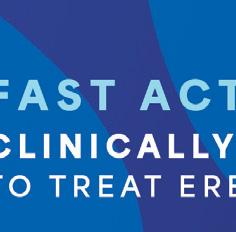






































The beauty category has multigenerational appeal, and shoppers of all ages enjoy discovery and experimentation. Social media influencers are helping to drive sales among millennials and Gen Z consumers who go online to learn about product ingredients, social and environmental impact and efficacy. Products with “free-from” ingredients and formulations, and those that offer health and wellness benefits are also gaining popularity.
Another trend is that drugstores are offering grab-and-go snacks, beverages and ready-to-eat meals for today’s busy consumers. “Surveys show that every generation purchases store brands, opening up a vast opportunity for innovative food and non-food store brand products that can be offered by drug chains,” Davies said.
Non-food manufacturers are adapting to changing consumer demands. In foot care, insoles sales are down as people work from home and wear comfortable shoes, and fungal type products such as athlete’s foot powders and sprays are all trending up, according to Todd Kehley, vice president of sales for Premier Brands of America. In first aid, quick and effective solutions and eco-friendly products are trending. “Most consumers wouldn’t think that private brand products would lead in eco, but we are, and the consumers are responding,” he said. With acne products, the company is seeing explosive growth in beauty treatment products and acne patch shapes.
According to the Ibotta 2024 State of Spend report, 43% of consumers said they had switched to a private label product to save money in the last month, and 56% of consumers do not believe name brand products are better quality than private label. The report noted that retailers need to make it easy for consumers to find the products. As in-store browsing remains the dominant way consumers encounter new products, store displays play an important role in discovery.
“You have to have shelf presence,” said Matt Brady, marketing manager for Reliance, which makes private label supplements. “The way brands take over a market is with a lot of size options and flavoring options, to take up a whole part of the shelf to grab your attention.”
Hydration is a big trend in supplements, Brady said, and store brands are tapping into demand for convenient stick packs of powdered electrolyte drinks in new flavors and low-sugar options. Brain support is also a big trend, and consumers are seeking products with magnesium, lion’s mane mushrooms, ashwagandha and other ingredients that support cognitive sharpness.
“You have to stay on trend with private label,” Brady said. “Your private brand is competing with national brands, so you have to be innovative.”
A
lot of times consumers try private brands because of price. What we are finding over time is they don’t leave it because they see the value. ”
Dianne Galang, vice president of Daymon
Private label will continue to innovate and compete. PLMA estimates that if sales continue at the current rate for the balance of the year, total store brand revenue for 2024 will exceed a quarter trillion dollars, setting a record for annual sales. “The industry has been through many market fluctuations over the years,” Davies said. “We’ve found a bump in consumer acceptance when the market returns to normal.” dsn

31,200


Fewer choices and fewer redundancies in the cough and cold aisle could help ease consumer confusion
By Kathie Canning

The average U.S. adult suffers through an average of two to three colds annually, according to the Centers for Disease Control and Prevention, while children tend to endure even more. Plus, 25.7% of adults and 18.9% of children have a seasonal allergy, and millions are sickened by the flu each year.
It’s no wonder that products promising to tame the symptoms of these conditions are in high demand. But these days, many consumers are finding it difficult to choose the right product.
One significant challenge for shoppers is the abundance of options, said Jessica Greenwood, marketing director for the Consumer Health division of Whippany, N.J.-based Bayer.
“With so many products on shelves, it’s hard to make choices,” she stressed. Phallon Obomanu, vice president, drug and specialty for Skillman, N.J.-headquartered Kenvue Inc., agreed, saying health care providers—including pharmacists—play a significant role in over-the-counter product recommendations.
“A key priority for Kenvue is not only educating the health care providers making these recommendations, but also the consumer,” Obomanu said. “They need to know what to look for in an OTC product and understand what is needed to treat their symptoms at home with product(s) and ingredients(s) that are right for them.”
That said, the cough and cold aisle still might benefit from a more curated selection. James Bragman, DOFACP—a boardcertified member of the American Board of Internal, Geriatric and Sports Medicine and a medical advisor to Bloomfield Hills, Mich.-based CofixRX LLC—notes that many brands now market several variations of essentially the same product, with the same active ingredients, which can be confusing to consumers.
“Drugstores should focus on choosing fewer variations of these redundant products of the same brand, with proven efficacy, for their cough/cold set,” Bragman said, “and make special considerations for products that will actually provide benefits towards better health versus masking symptoms temporarily or, worse, providing no benefit at all.”
In 2023, a Food and Drug Administration advisory committee recommended the removal of oral phenylephrine from FDA’s approved list of ingredients for cold and cough medicines, noted Sameer Rabbani, vice president, marketing, respiratory for Haleon, with U.S. headquarters in Warren, N.J. “With so many products on shelves, it’s hard to make choices.”
— Jessica Greenwood, marketing director, Bayer Consumer Health division













Traditional over-the-counter cough and cold remedies are seeing some real competition from homeopathy, a centuries-old alternative medical practice. According to the Food and Drug Administration, homeopathic remedies are based, in part, on the principle that “like cures like”—essentially, “a substance that causes symptoms in a healthy person can be used in diluted form to treat symptoms and illnesses.”
A December 2023 report from Business Market Insights, “North America Homeopathy Market Forecast to 2030,” forecasts a compound annual growth rate of 15.1% for the North American homeopathic market between 2022 and 2030, predicting it will reach more than $5 billion by 2030.
“The shift towards homeopathic medicines reflects a broader consumer desire for holistic and individualized health solutions,” said MaryEllen Tefft, vice president of sales, FDM, for Boiron USA, Newtown Square, Pa. “The pandemic certainly accelerated this trend, as more people sought self-care options at home and became more conscious of the ingredients in their products.”
Boiron recently increased its presence in the homeopathic cough and cold remedies space with the introduction of ThroatCalm Spray. The product relieves occasional sore throat discomfort without the numbing effects associated with traditional throat sprays and lozenges, Tefft noted.
“This plant-powered formula features a mint-like herbal flavor and combines the calming properties of echinacea with the soothing and healing benefits of plantago major,” she said.
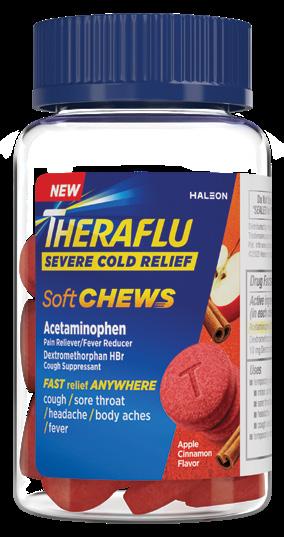




“PE is the only oral nonprescription medicine for nasal congestion available without purchase restrictions,” Rabbani pointed out. “As we await FDA’s final decision on oral PE, the future of the category remains unknown with potential for great disruption.”
Even if they are working toward a more curated cough and cold product assortment, drugstores will likely want to consider adding some new products that are in line with current consumer needs.
“Right now, there is a big shift toward cough and cold medicine that can tackle multiple symptoms in one go,” Greenwood said. “There is also a growing interest in new formats, from liquids to chewable tablets, especially those with sensorial or practical benefits like the ability to take it on the go.”
Bayer’s new Alka-Selzer Plus cold & flu fizzy chews deliver on these consumer demands, Greenwood noted. The chewable, portable tablets provide fast multi-symptom relief in a fizzy format that requires no water, per the brand.
Haleon also is catering to on-the-go needs with the recent release of Robitussin and Theraflu soft chews.
Meanwhile, Kenvue’s latest adult products in the category, Tylenol Extra Strength Severe Cough and Sore Throat, aim to give on-trend multi-symptom relief in a consumer-friendly liquid format.
“As the category and consumer needs change, we plan to include more Tylenol products in the cold and flu assortment in the coming months as well,” Obomanu said.” dsn
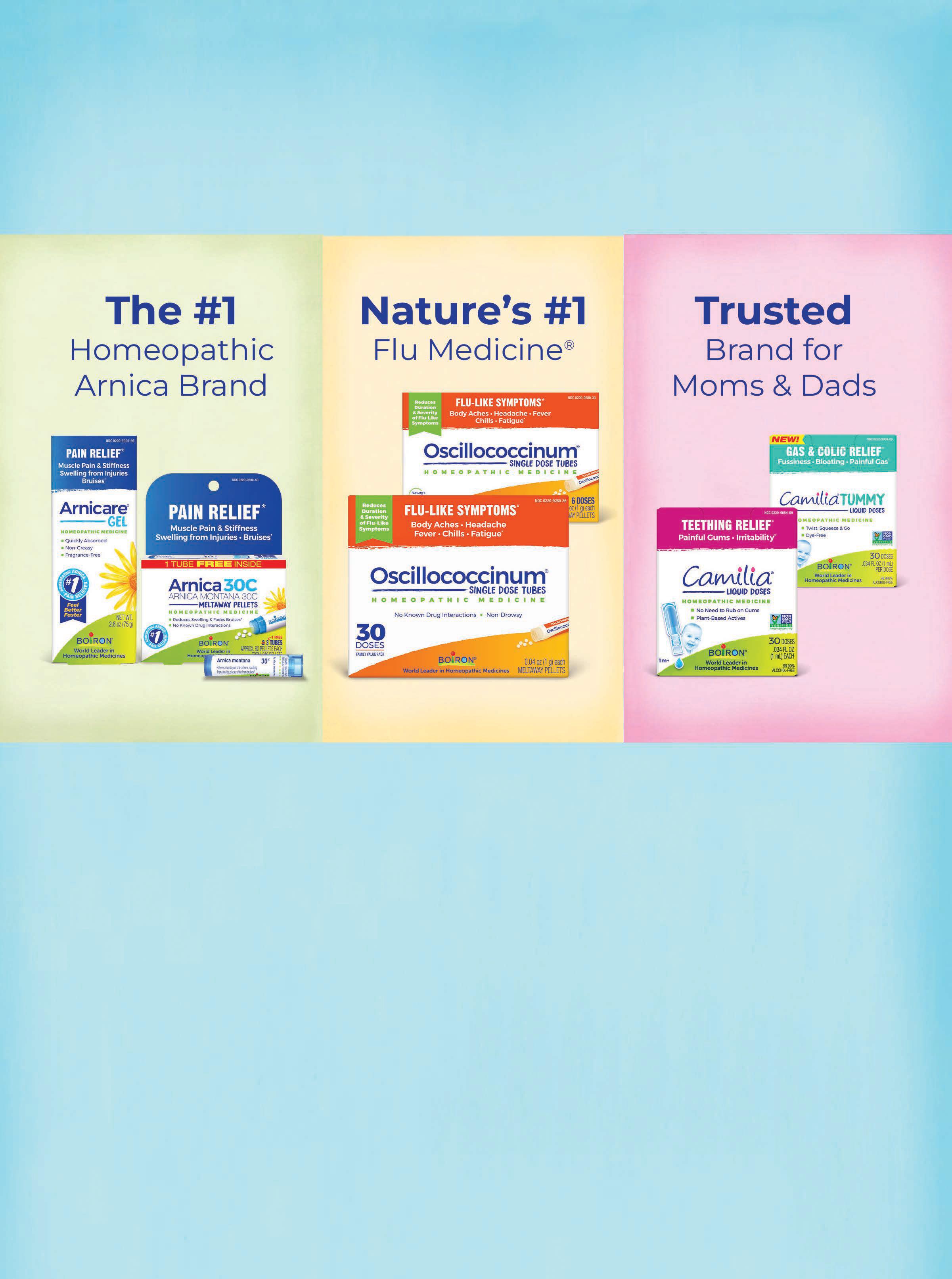
For almost a century, Boiron has provided families with the purest medicines made from the earth’s best resources. From our renowned Arnicare® line, to trusted Oscillococcinum® and Camilia® brands, our expanding range meets the diverse needs of your customers.
*CLAIMS BASED ON TRADITIONAL HOMEOPATHIC PRACTICE, NOT ACCEPTED MEDICAL EVIDENCE. NOT FDA EVALUATED.

Food and drug retailers need to focus on attracting and retaining associates all year long
By David Orgel
Forget just for a moment all the recent talk about artificial intelligence and other emerging technologies as key to the future of retail. Humans—as in employees—will remain essential. This becomes especially clear during the holidays.
However, food and drug retailers need to focus on attracting and retaining associates all year long. These retailers compete with rivals and other industries for associates. They need to lean in on supporting workforces by understanding and acting on employee needs. Retailers who do this well will ace the competition for talent and drive business success.
Retailers benefit from listening to employees about what is most important to them. Here is some employee feedback from a 2024 retail employee survey by Purchasing Power, a financial wellness voluntary benefits company: Retail employees generally feel good about their jobs and are committed to their roles in retail. But nearly one third are keeping their options open to other industries.
When asked which incentives help drive retention in retail, 72% of employees cite better salaries; 55% say receiving more or better benefits; 54% point to better hours; and 49% cite having more control over their schedules.
More than one third of employees emphasize the importance of discounts on products on services from their employers.
Some retailers are introducing creative approaches for compensation and benefits. Sam’s Club recently unveiled a “reimagined approach to its workforce

compensation.” The plan “sets predictable pay increase milestones to give associates a longer-term perspective on their financial futures.” The company said associate hourly wages will progress faster in their pay range, expanding the increase to between 3% and 6% based on years of service.
On the benefits front, Walgreens announced the launch of a new program that will allow employees to qualify for company 401(k) match contributions as they pay down their student loans. The program will treat enrolled team member student loan payments like contributions to the Walgreens Retirement Savings Plan 401(k). Walgreens matches eligible student loan payments up to 4% of eligible pay.
The high costs of childcare have been prominent in the news. Some retailers have unveiled programs to help reduce these and other family care costs. Meijer announced a benefit aimed at supporting care for children, adult dependents and elderly family members. Team members can take advantage of discounts by using a care provider from their personal network or by leveraging any of the 1,100-plus schools operated by Learning Care Group.
David Orgel is an award-winning business journalist, industry expert and speaker. He is currently the principal of David Orgel Consulting
Retailers are tapping into technology to help engage employees in training. A case in point is Target, which is leveraging emerging technology for a new initiative that is drawing positive feedback from employees. The retailer launched a Gen AI tool called Store Companion that can answer questions, train new associates and support store operations management.
Retailers gain a reputational boost when they build positive cultures for employees. Food retailers appearing at the top of the 2024 Fortune Best Workplaces in Retail List, produced by Great Places to Work, include Wegmans Food Markets, Target and Publix Super Markets.
One of the Publix employees surveyed explained how the retailer outperforms. “People care about you here,” this person said. “They provide mentorship and want you to succeed and move up in the company.”
That kind of feedback is magical for building retailer reputations and driving competitive advantage. It spotlights the benefits of leaning in on the workforce. dsn

























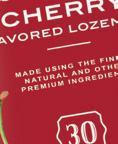























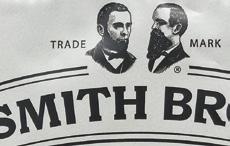
















































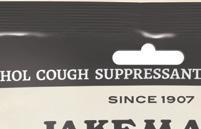






































































Making affordable medicines for good health shouldn’t harm the environment. At Dr. Reddy’s, our commitment to the planet lies at the heart of all that we do. We manage our anufacturing and business activities within a sustainable framework: from zero liquid discharge and zero hazardous waste to landfill initiatives, to reducing packaging, green chemistry, and process innovation. Minimizing the environmental impact of our business operations is our top priority because Good Health Can’t Wait.















